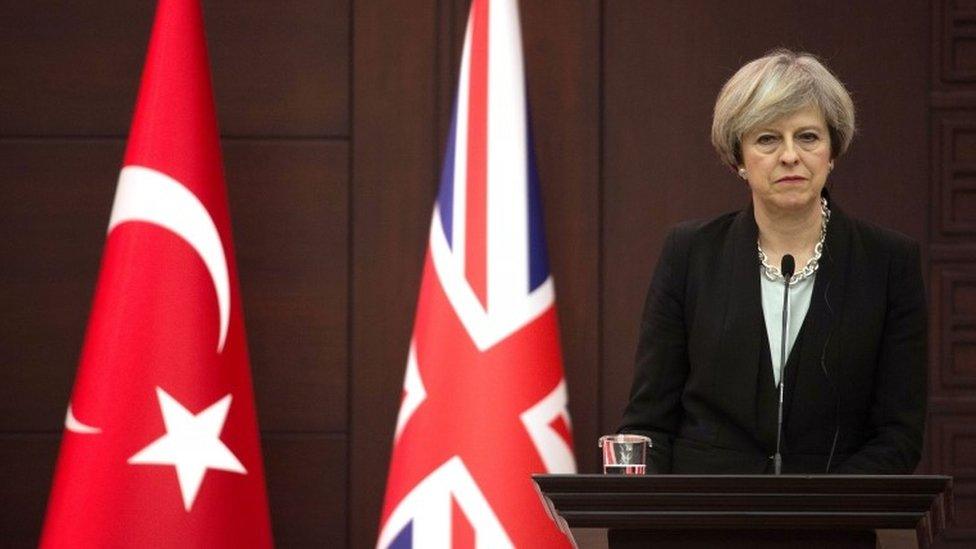Trump and Putin make counter-terror top priority in first call
- Published
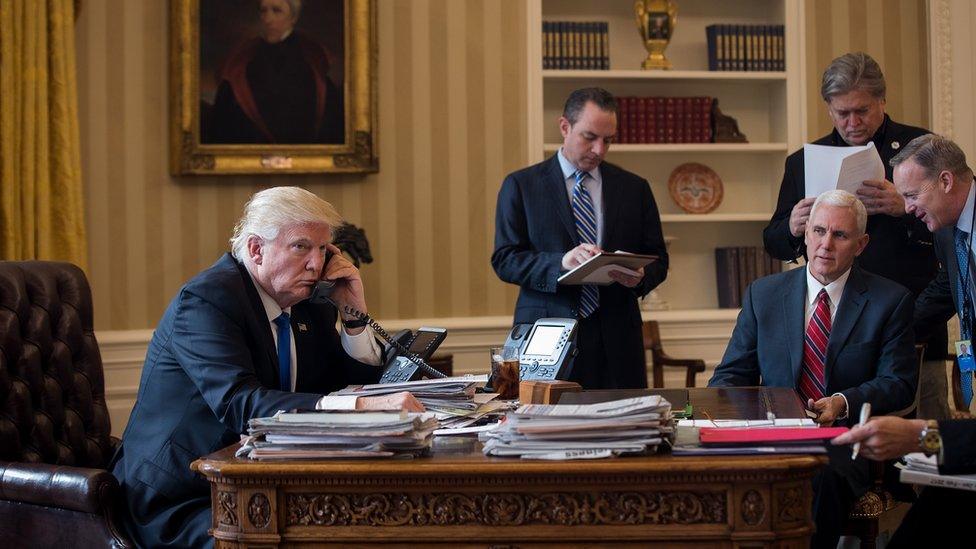
Mr Trump - flanked by his vice president and senior aides - speaks to President Putin from the Oval Office
Donald Trump held a series of phone calls with world leaders on Saturday - including one with Vladimir Putin.
The Kremlin said both sides had agreed to make fighting "international terrorism" - including so-called Islamic State and "other terrorist groups" in Syria - a top priority.
The White House said the call was a "significant start" to improving a relationship "in need of repair".
Mr Trump also spoke with leaders from Japan, Germany, France and Australia.
In a statement in English, the Kremlin provided more details of the first official call between the two leaders since Mr Trump took office.
It said it was a "positive and constructive" conversation, during which they discussed:
The fight against terrorism
The Middle East, and the Arab-Israeli conflict
Strategic stability, non-proliferation, and Iran's nuclear programme
North and South Korea
The situation in Ukraine
"The two leaders emphasised that joining efforts in fighting the main threat - international terrorism - is a top priority," Russia said.
"The presidents spoke out for establishing real coordination of actions between Russia and the US aimed at defeating Islamic State and other terrorists groups in Syria."
The Russian account of the call was also notable for its lack of any mention of economic sanctions against Russia by the US, which have been the subject of much speculation in recent days.
But the statement did say both parties "stressed the importance of rebuilding mutually beneficial trade", which, the Kremlin said, could aid the development of relations in other areas.
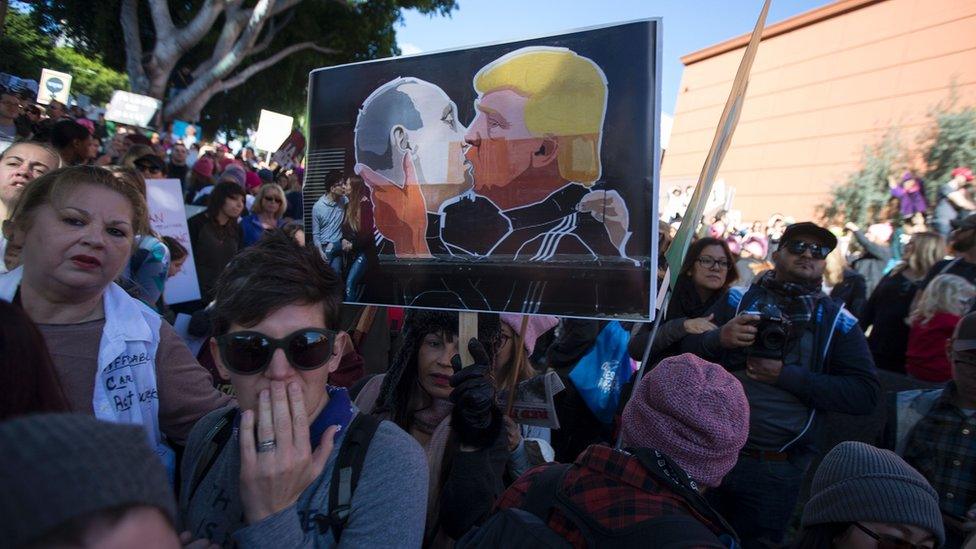
Mr Trump's relationship with President Putin was a controversial issue during the election campaign
Russia is a key backer of Syrian President Bashar al-Assad, who regards as terrorists all armed groups fighting him, though the previous US administration supported some moderate rebels.
The White House did not offer additional clarity on the items discussed, but rather issued a short statement saying: "Both President Trump and President Putin are hopeful that after today's call the two sides can move quickly to tackle terrorism and other important issues of mutual concern."
The pair also agreed to arrange a face-to-face meeting for a later date - and stay in "regular personal contact".
In his other telephone calls on Saturday, President Trump invited Japanese Prime Minister Shinzo Abe to the White House in a meeting scheduled for 10 February, press secretary Sean Spicer said.
Could Trump defrost Russian relations?
Strident critic of Russian Policy and chair of the Armed Services committee, Senator John McCain, warned Mr Trump about easing sanctions against Moscow.
"I hope President Trump will put an end to this speculation and reject such a reckless course,'' he said in a statement.
"If he does not, I will work with my colleagues to codify sanctions against Russia into law."
Another Republican senator, Rob Portman, said lifting sanctions would send "a dangerous message to a world already questioning the value of American leadership" after President Obama's term.
Meanwhile, the new president's executive order banning refugees from entering the country has been met with protests and legal action, after a number of refugees in transit were detained at airports.
Correction 30 January 2017: This story has been amended to make clear that Syria, rather than Russia, considers all armed rebel groups fighting Bashar al-Assad as terrorists.
- Published29 January 2017
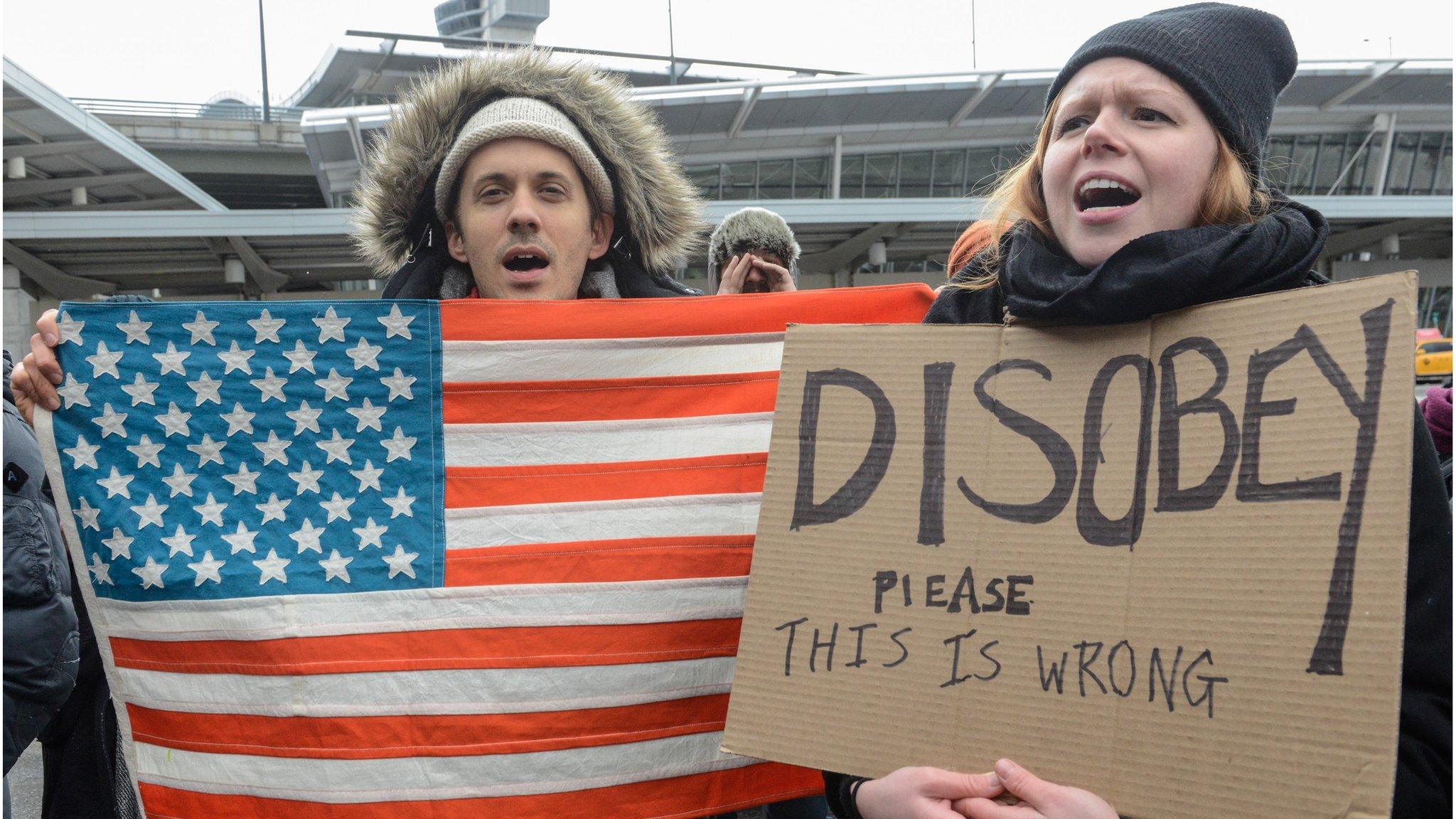
- Published27 January 2017
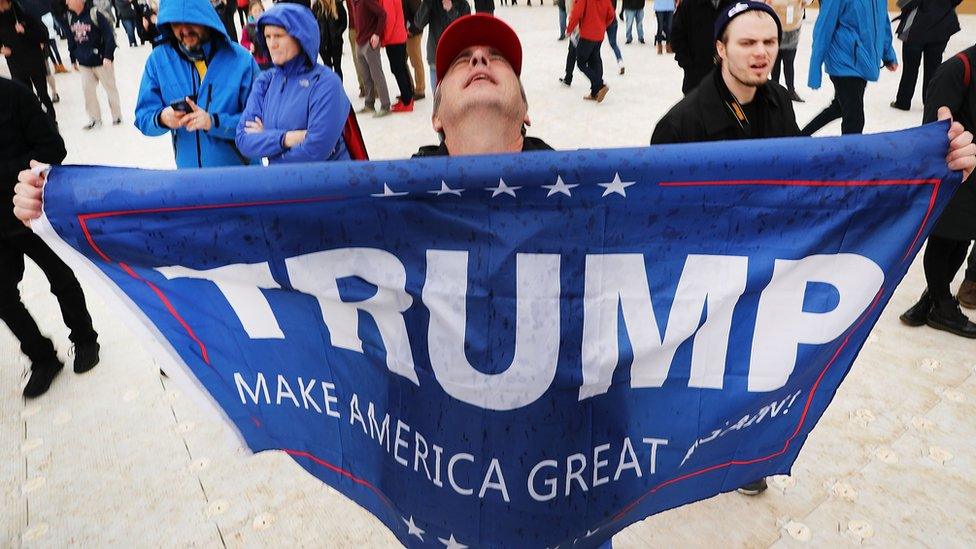
- Published26 January 2017
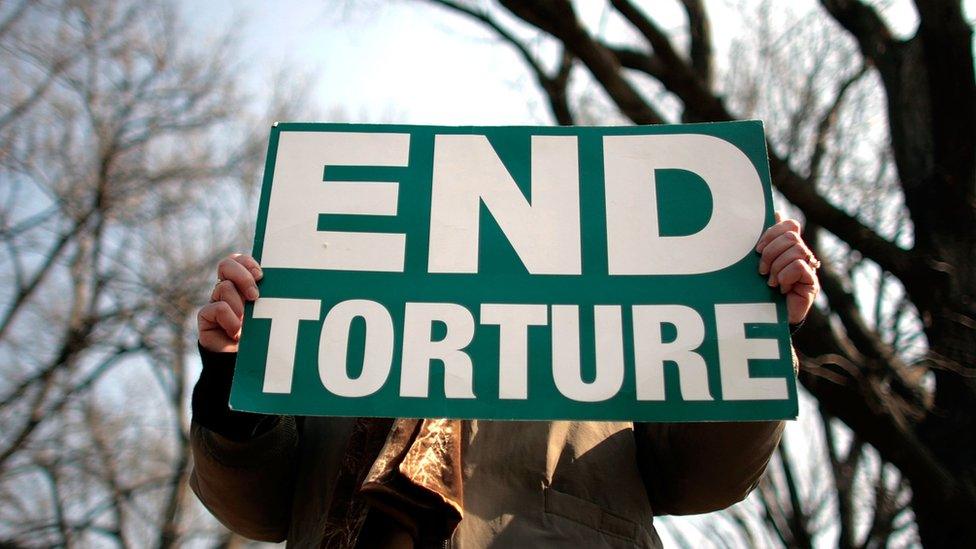
- Published12 April 2017
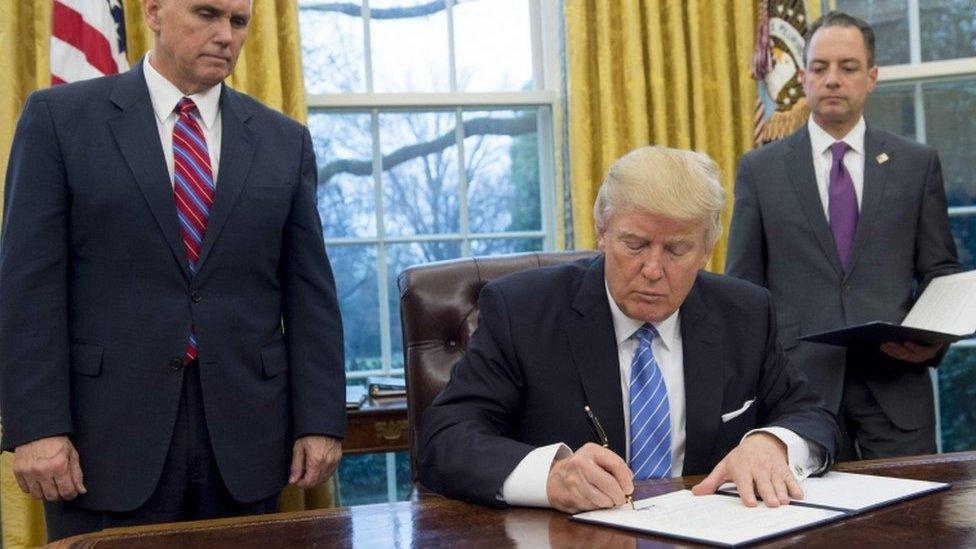
- Published6 July 2017
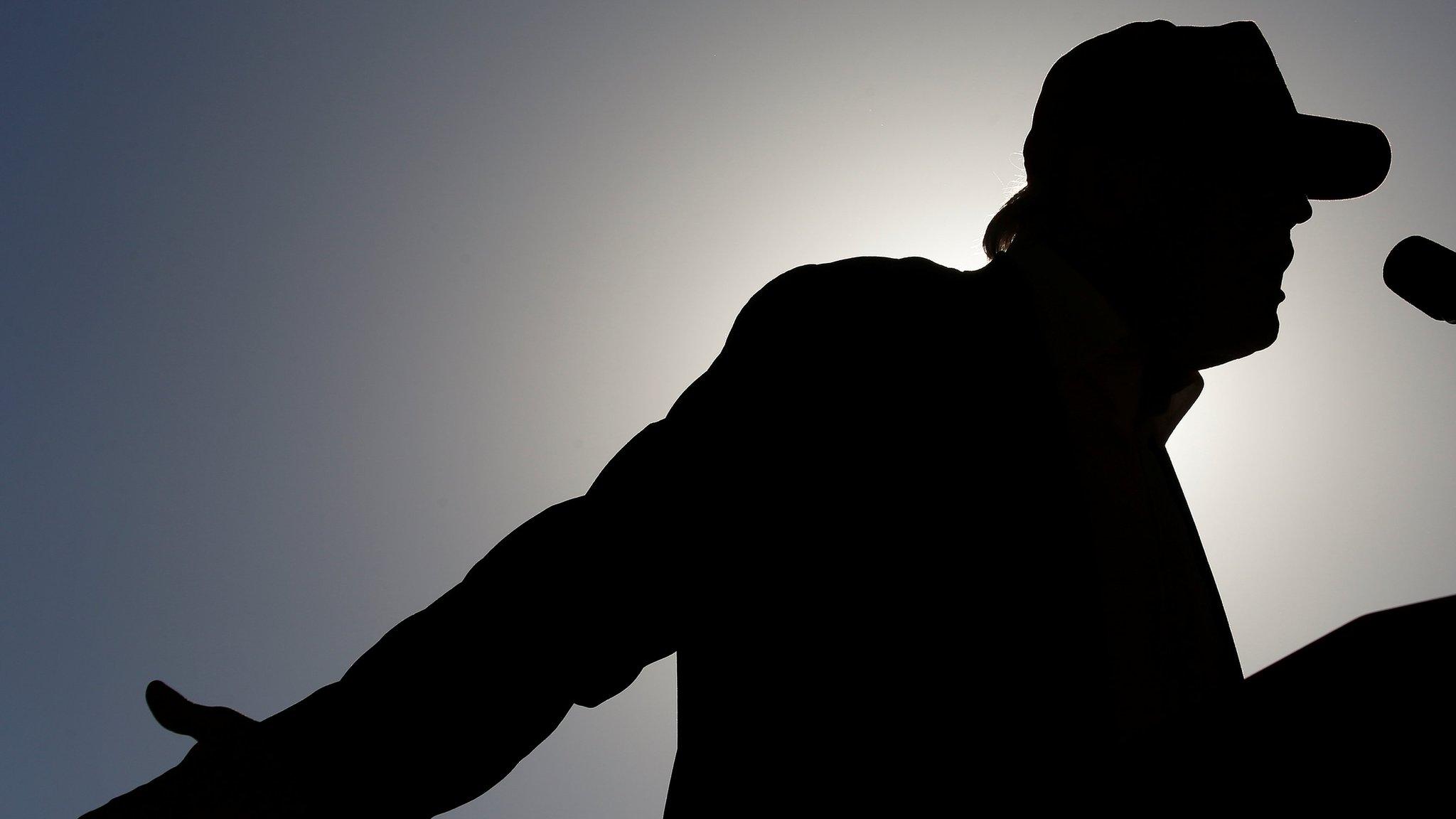
- Published10 February 2017
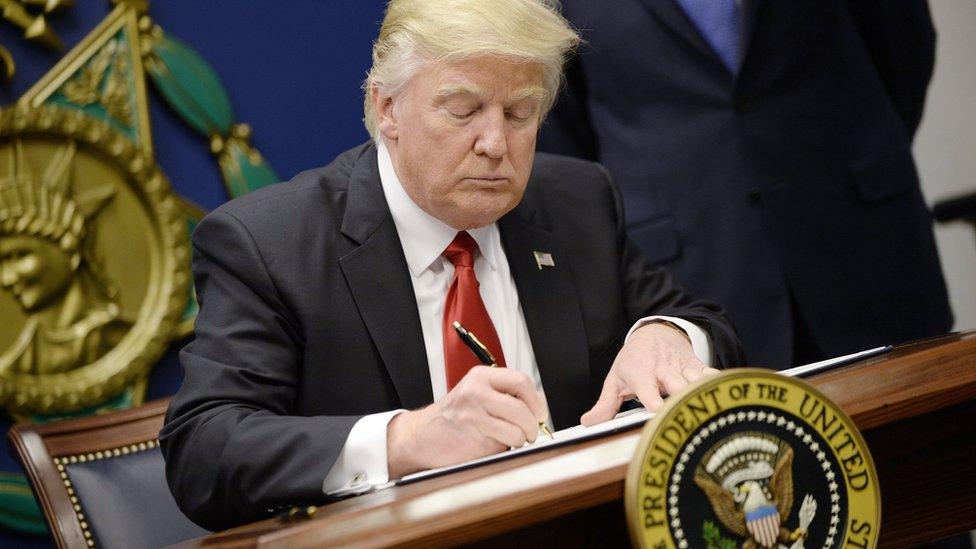
- Published28 January 2017
